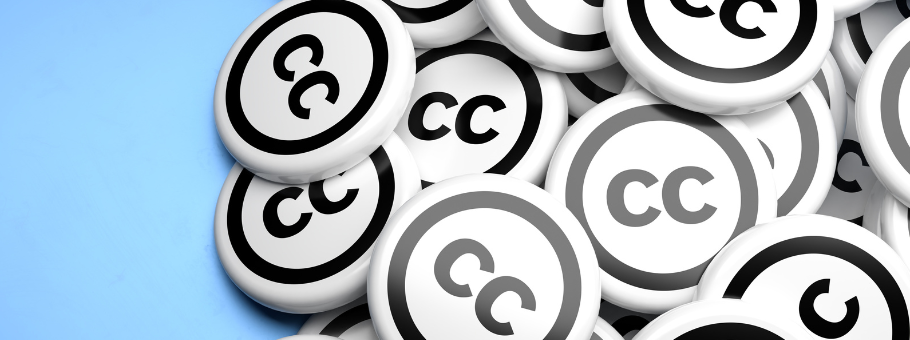Plan S: What Implications Does It Have on Learned Societies?

You can also listen to this article as an audio recording.
Learned societies have been under pressure for some time. While traditionally, most societies have relied on a combination of meetings and publication inducements (for example, free or substantially subsidized copies of the society’s journals) to provide their headline value proposition for membership, recent developments in digital scholarly offerings (such as multi-person, remote user access to journals) compounded by Open Access business models have significantly reduced their sway.
New Challenges
On 4th September 2018, came a new challenge for learned societies operating publishing portfolios. With the support of the European Commission and European Research Council, Science Europe (an association of major European research funding and research performing organizations in 27 countries, established in 2011 to promote the collective interest of its members and to foster collaboration between them) announced the launch of cOAlition S, an initiative to make full and immediate Open Access to research publications a reality by the implementation of Plan S.
Plan S’ headline objective is that “[a]fter 1 January 2020 scientific publications on the results from research funded by public grants provided by national and European research councils and funding bodies, must be published in compliant Open Access Journals or on compliant Open Access Platforms.” You can find more information on its aims, objectives, and principles in a previous Enago article, while this piece examines its reception and implications, in particular for learned societies, in more detail.
Originally, Austria, Finland, France, Ireland, Italy, Luxembourg, Netherlands, Norway, Poland, Slovenia, Sweden, and the UK were part of this organization. In addition, private funding bodies such as the Gates Foundation and Wellcome Trust, as well as several other non-European countries soon joined them. A further set of national funders (for example, Germany, China) and other research-supporting organizations (for example, African Academy of Sciences, Confederation of Open Access Repositories) have since provided institutional statements of support.
Shortly after its announcement, cOAlition S launched a community feedback process on the implementation guidelines, with a deadline for submissions of 8 February 2019. At the time of writing, an interim analysis of the feedback is promised for ‘the spring,’ however, there is no official date as yet.
Responses
There were over 600 responses, from multi-national corporations, universities, and individuals, amongst others. A previous blog has given a useful summary of their contents. While there were a number of high-level trends – including a general indication of support for Open Access – many responses articulated several unforeseen consequences should the current principles and timelines be enforced without further refinements. There were also many calls for clarification – on timetables, definitions of terms, and on how the transformations in access are expected to be delivered.
Researchers from the Global South, and those working in the humanities and social sciences, were highlighted as being disproportionately disadvantaged by the Plan S provisions, which are largely directed towards the sciences and researchers specifically funded by cOAlition members. In addition, the needs to make technological adaptations, potentially lower costs, and re-frame license agreements with customers can potentially be met by the larger publishers, but realistically exclude smaller players, including the society publishers. See, for instance, the Society Publishing Coalition’s response, which points out the level of resources required – to model for new transformative agreements, such as “Read and Publish” arrangements with customers and to take the financial hit when flipping journals from hybrid to full Open Access – and calls for cOAlition S to provide more guidance and time for preparation.
The Society Publishers Accelerating Open Access and Plan S project (SPA-OPS)
Launched in February 2019, The Wellcome Trust, UKRI, and the Association of Learned, Professional & Scholarly Publishers (ALPSP) commissioned a study to explore a range of potential strategies and business models to support learned society publishers successfully transition to open access (OA) and align with Plan S. This project is being conducted openly and with various opportunities for learned societies to connect and contribute to its findings. An initial discussion paper has been published on the Information Power consultancy website, together with an invitation for society publishers to complete a short survey. Pilots with two society publishers will bring some of the approaches and models to life; the final report will be published in July 2019 with all materials being made available under a CC-BY license.
In the meantime, SPA-OPS has held a briefing meeting providing some preliminary survey findings, progress updates, and insights on Plan S implementation issues. It has improved the clarity on how much the consortia-license negotiation process has been complicated by the insertion of the Open Access element in recent years, and that this has been rendered even more difficult by the Plan S timetable. To begin with, it sets the relative needs and expenses between research-intensive (high costs to publish) vs. teaching-intensive (high need to access) consortia members at odds with each other. So, not only do journal publishers need to re-visit their separate consortium agreements, the consortia themselves are conducting unprecedented internal negotiations to ascertain how to allocate resources and costs.
Further, both internal and external negotiations are dependent upon the reliability of data about the journals – including usage, discounts, author affiliations, funder and grant identifiers. This data is more difficult for smaller (society) publishers to provide, and they are also more likely to struggle with the increasingly lengthy sales discussions.
Conclusions
While Plan S certainly represents a major challenge to society publishers, there is also scope to take action. Engaging with relevant bodies and initiatives – such as SPA-OPS, ALPSP, and the Scholarly Publishing Coalition will provide up to date information and opportunities to be heard as Plan S develops. At the same time, it should be remembered that Plan S is not the only disruptive influence in the research communications ecosystem, and should not be treated as its sole problem. In order to remain viable, societies need to understand and support their respective communities’ needs.
Now is undoubtedly an excellent time to future proof publishing programs and revenue streams through consultation on Plan S and to build robust databases upon which to rely when negotiating with customers. It would also be advisable to review and update our understanding of how societies and their members can mutually benefit and develop each other through information exchange, validation, and the implementation of standards in research methods, policies, and ethics.
Fiona Murphy, Owner, Murphy Mitchell Consulting Ltd.
An experienced Open Science and scholarly communications consultant, Fiona works with fellow stakeholders, including learned societies, publishers, large- and small-scale projects and tech start-ups, on a wide range of projects involving research, product and policy development, outreach and communications.
She is an Associate Fellow at the University of Reading, on the Steering Committee for the FORCE11 Scholarly Communications Institute (FSCI) and Secretary for the Dryad Data Repository Board of Directors.










Nice Post